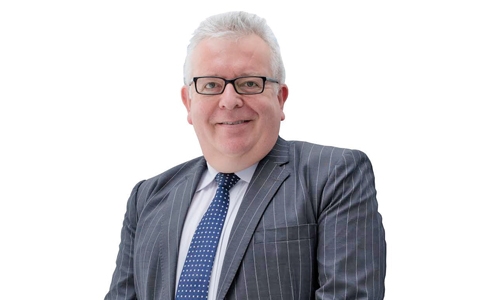Leadership in an Economic Downturn
The success of any organisation depends to a large extent on the quality of its leadership. But do the same leadership qualities that drive an organisation during times of growth also sustain it when faced with economic uncertainty or a full-blown crisis?
To answer this question let us turn the clock back to 1960 and the publication by MIT Professor Douglas McGregor of The Human Side of Enterprise, a book that turned out to be one of the most influential in the history of management science. McGregor’s thesis was essentially very simple: leadership behaviour tends to rest on one of two basic, but opposing, assumptions about the nature of human motivation. The first he called Theory X and it goes something like this: people are basically lazy, selfish, motivated only by external rewards like money, and need to be controlled and coerced if they are to do a decent day’s work. Theory Y, on the other hand, runs like this: people naturally seek self-fulfilment through work, they are motivated by the intrinsic satisfaction that work brings and, if left alone, they will tend to do their best and take responsibility for the work they do.
For McGregor, all leaders, whether they realise it or not, tend to make one or other of these assumptions about the people they lead. Whilst nearly all leaders will profess a commitment to Theory Y thinking, the reality, as demonstrated by their actual leadership behaviour, is often very different. Let us take a simple example: do you, as a leader, monitor the attendance of your staff by requiring them to clock in and out? Or, do you simply trust your staff to be where they need to be to get the job done, and focus instead on what they achieve? The former is a classic example of behaviour based on Theory X assumptions: if I don’t monitor their attendance, my staff will take advantage of the situation and do less work than they are paid to do. The latter, however, reveals a classic Theory Y assumption: my staff are mature and responsible people, committed to doing a good job and, if left alone, will choose the best place, time and method of achieving the desired outcome.
Theory X managers, then, have a tendency to micro-manage; to check every stage of their employees’ work, to manage through a system of rewards and punishments and to break down work into discrete tasks. Theory Y managers, on the other hand, encourage their employees to grasp the big picture, to understand the organisation’s goals and to use their experience and creativity to choose the best methods of achieving them. Theory X managers approach their staff with an underlying sense of suspicion, a lack of trust which assumes that if they can foul it up, they will foul it up. Theory Y managers, by contrast, implicitly trust to the competence and honesty of their employees and assume, that with minimal supervision, they will get things done in the most efficient and effective way possible.
History has demonstrated, again and again, that when faced with financial uncertainty, a common reaction of leaders is to fall back on Theory X type behaviours. Too often a kind of institutional panic sets in, where leaders try to gain personal control over costs, centralise previously delegated decision-making and invoke emergency interventions that require the approval of top management before any action of any significance can be taken. Previously trusted employees are stripped of their delegated authority and even the smallest items of proposed expenditure must be scrutinised by those at the top of the organisation.
Ironically, this is actually the worst possible way for leaders to behave in a crisis. Above all else, crises require strategic thinking: a medium-to long-term vision of the organisation’s future. New markets, new products, new structures, new technologies and new business models must all be considered to ensure the organisation’s long-term survival and success. Of course, the smooth continuation of day-to day business is also crucial, but this is not where the attention of top management should focus. Theory Y leaders understand that the need to trust employees is greater than ever in a crisis. Not only does trust and delegation free the organisation’s leaders to concentrate on strategy, but they also realise that, if efficiencies need to be made, those in the front-line are usually best placed to know how and where to make them. A flexible, motivated and empowered workforce, which understands the organisation’s wider goals is the greatest asset any organisation can have. In times of crisis, it could make the difference between survival and collapse.
The author is Head of the Academic Centre and Quality Assurance and the Bahrain Institute of Banking and Finance.
Related Posts

